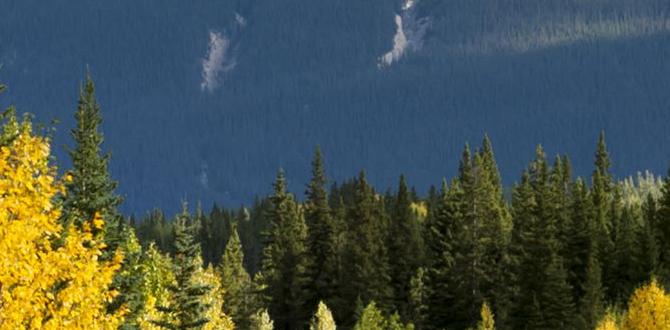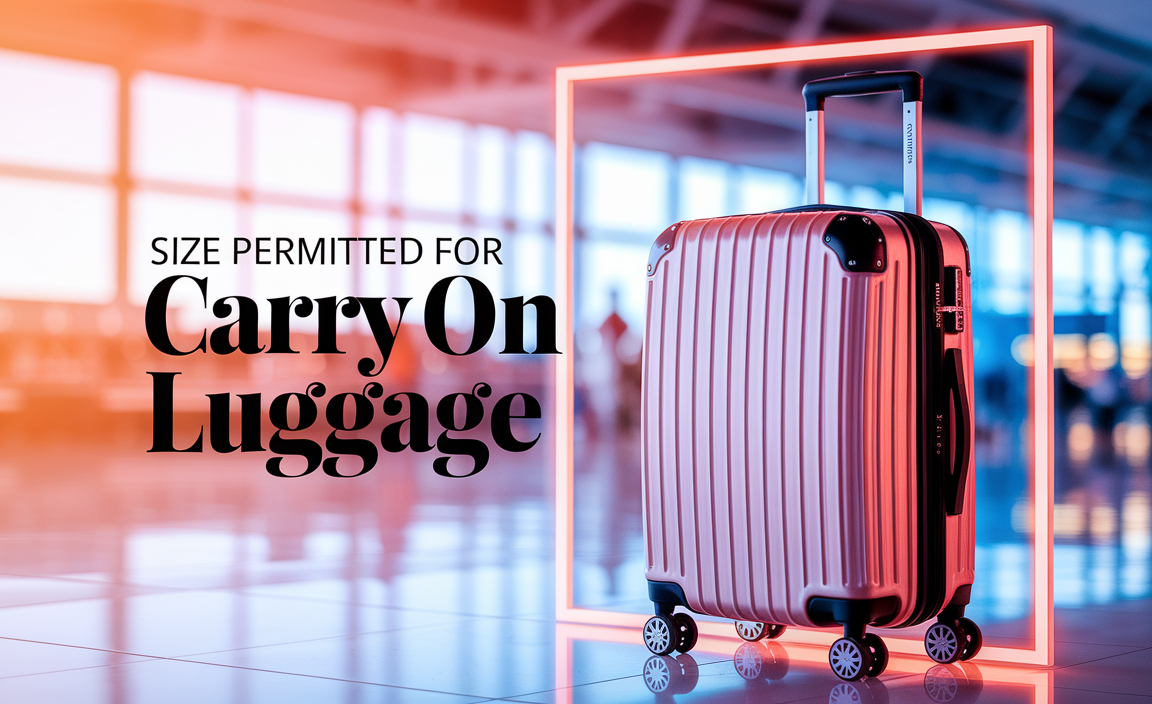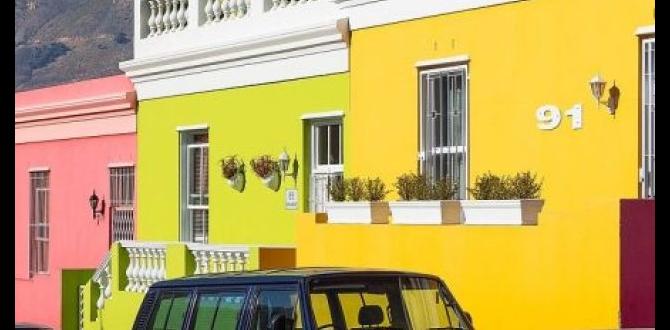Your brilliant Algeria itinerary is achievable with this guide! Plan a stress-free trip exploring ancient ruins, vast deserts, and vibrant cities with practical steps and comfort tips for every traveler.
Dreaming of an Algerian adventure but unsure where to start? Planning a trip to a country as diverse as Algeria can feel a little overwhelming. You might be wondering about the best routes, what to pack, or how to ensure a comfortable journey, especially if you need to manage personal care needs like adult or child diapers during long travel days.
Don’t worry, it’s completely manageable! This guide is designed to break down Algeria’s wonders into a clear, actionable travel plan, making your exploration exciting and smooth. We’ll cover everything from iconic sights to practical tips, ensuring you feel confident and prepared for an unforgettable experience.
Your Brilliant Algeria Itinerary: A 10-Day Adventure
Algeria is a land of captivating contrasts, from the azure waters of the Mediterranean to the golden dunes of the Sahara. Crafting the perfect itinerary depends on your interests, but for a comprehensive first-time experience, a 10-day plan offers a fantastic balance. This itinerary focuses on the historical north, the stunning coast, and a taste of the majestic desert, ensuring you see some of Algeria’s most brilliant gems.
Day 1-3: Algiers – The White City of Charm
Your journey likely begins in Algiers, the vibrant capital city perched along the Mediterranean coast. Known as “Alger la Blanche” (Algiers the White) for its distinctive white-washed buildings, it’s a city where history and modernity intertwine beautifully.
Things to Do in Algiers:
- Kasbah of Algiers: Wander through the labyrinthine alleys of this UNESCO World Heritage site. It’s a living museum filled with traditional homes, mosques, and bustling marketplaces.
- Notre Dame d’Afrique: Visit this stunning basilica offering panoramic views of the bay. Its architecture and serene atmosphere are a must-see.
- Musée National des Beaux-Arts: Appreciate a rich collection of Algerian and European art.
- Monument des Martyrs (Maqam Echahid): This impressive concrete monument commemorates Algeria’s war dead and offers breathtaking city vistas.
- Explore the Corniche: Enjoy a leisurely stroll along the waterfront promenade, especially captivating at sunset.
Where to Stay in Algiers:
Algiers offers a range of accommodations. Consider hotels near the city center for easy access to attractions. For comfort and convenience, especially if you require discreet personal care items like adult diapers, look for hotels with reliable amenities and good service.
Day 4-5: Tipasa & Cherchell – Echoes of Antiquity
Just a short drive west of Algiers lie the ancient Roman ruins of Tipasa and Cherchell, offering a deep dive into Algeria’s rich historical tapestry.
Tipasa:
This archaeological site, another UNESCO World Heritage site, boasts well-preserved Roman ruins, including a basilica, amphitheater, and villas, all set against the backdrop of the sea. It’s a peaceful place to explore history.
Cherchell:
Formerly Caesarea, Cherchell was the capital of the Berber Kingdom of Mauretania. Its archaeological museum houses a remarkable collection of Roman statues and artifacts. The ancient Roman theater is also a highlight.
Getting There:
You can arrange a day trip from Algiers with a private driver or join a guided tour. The drive is scenic and relatively short, making it a perfect excursion.
Day 6-7: Oran – Andalusian Charm and Modern Vibrancy
Fly or take a train to Oran, Algeria’s second-largest city, known for its lively atmosphere, beautiful architecture, and strong Andalusian heritage. It’s a city with a unique rhythm and plenty to discover.
What to See in Oran:
- Santa Cruz Fortress: Perched on a hill overlooking the city and bay, this 16th-century Spanish fortress offers incredible views and a glimpse into Oran’s past.
- Place du 1er Novembre 1954: The city’s central square is a hub of activity, surrounded by impressive colonial-era buildings.
- Grande Mosquée d’Oran: Admire the intricate design of this significant religious site.
- Casimir Lutaud Square (formerly Place de la Bastille): Another charming spot for people-watching and soaking in the city’s vibe.
- Wander the Streets: Oran’s streets are filled with architectural gems from its French and Andalusian past.
Oran’s Comfort Factor:
Oran is a bustling city. If you’re traveling with children or require personal care like adult diapers for longer durations, pre-planning is key. Ensure you have a comfortable supply. Many hotels in Oran cater to international travelers, offering good services.
Day 8-10: Ghardaïa – Gateway to the Sahara
For a truly unique experience, head south to Ghardaïa, the largest of the M’zab Valley’s five fortified cities, a UNESCO World Heritage site renowned for its traditional architecture and the resilient Mozabite culture.
Exploring Ghardaïa:
- The Five Touggourt Cities: Visit Ghardaïa, Beny Isguen, Bou Noura, El Ateuf, and just outside the valley, Timimoun (though Timimoun is a bit further and might require adjusting the itinerary). Each offers unique charms.
- M’zab Valley Architecture: Marvel at the distinctive fortified villages built on rocky outcrops, with their white-washed houses, minarets, and communal granaries. Learn more about the M’zab Valley’s cultural significance on the UNESCO website.
- Local Markets: Experience the vibrant local life and perhaps pick up some unique handicrafts.
- Sahara Experience: Arrange a trip to the nearby desert for an unforgettable experience, whether it’s a camel ride or simply watching the sunset over the dunes.
Sahara Travel Tips:
Travel to Ghardaïa is typically by flight from Algiers or Oran. Desert excursions require careful planning. Ensure you have comfortable, breathable clothing. For those needing discretion and comfort for personal care needs like adult diapers, planning ahead is crucial, especially in more remote desert camps. Pack enough supplies for your entire desert stay.
Algeria Travel Planning Essentials
Beyond the itinerary, several practical aspects will make your Algerian journey brilliant and stress-free. From visa requirements to packing, here’s what you need to consider.
Visa Requirements
Visa requirements for Algeria can vary depending on your nationality. It’s essential to check the latest regulations well in advance of your travel dates. Typically, you’ll need to apply at an Algerian embassy or consulate in your home country. Some nationalities may be eligible for a visa on arrival under specific conditions, but it’s always safest to secure your visa beforehand.
Always check with the official Algerian Ministry of Foreign Affairs or the embassy in your country for the most up-to-date information.
Best Time to Visit
The best time to visit Algeria depends on where you plan to travel:
- Spring (March to May): Ideal for exploring the northern cities and coastal areas. Pleasant temperatures, blooming flora.
- Autumn (September to November): Also excellent for the north, with mild weather and fewer crowds.
- Winter (December to February): Cooler in the north, but still manageable. The desert regions are pleasant during this time.
- Summer (June to August): Very hot in the north and extremely hot in the Sahara. Suitable for coastal areas if you prefer heat, but requires careful management of hydration and sun protection.
Getting Around Algeria
Algeria’s vastness means transportation options are key:
Flights: For covering long distances quickly, domestic flights between major cities like Algiers, Oran, and Tamanrasset are efficient. Companies like Air Algérie operate these routes.
Trains: SNTF (Société Nationale des Transports Ferroviaires) operates a rail network connecting major cities in the north. It’s a scenic and often comfortable way to travel between destinations like Algiers and Oran.
Buses: A more budget-friendly option, intercity buses connect most towns and cities. Services can vary in comfort.
Car Rental: Renting a car offers flexibility, especially for exploring regions around cities like Algiers or for longer road trips. However, driving in Algeria can be challenging due to traffic and road conditions. Hiring a driver through your hotel or a local agency is often a more stress-free option.
Taxis: Taxis are readily available in cities for local travel.
Packing Essentials for Algeria
Packing smartly ensures comfort and preparedness throughout your trip. Consider the diverse climates you might encounter.
Clothing:
- Lightweight, breathable clothing (cotton, linen) for daytime.
- Long-sleeved shirts and trousers for sun protection and cultural modesty.
- A light jacket or sweater for evenings, especially in spring/autumn or cooler desert nights.
- Comfortable walking shoes are essential.
- A scarf or shawl can be useful for women visiting religious sites or for sun protection.
- For desert trips, warmer layers are needed for evenings.
Personal Care & Comfort:
This is where planning for specific needs comes in. For travelers requiring adult care, like adult diapers, or parents traveling with children needing child diapers, ensuring you have a sufficient and comfortable supply is paramount for stress-free exploration.
- Adult Diapers: Choose discreet, absorbent options suitable for extended wear. Look for brands known for comfort and reliability, like those available from reputable online retailers or pharmacies in larger cities. Pack more than you think you’ll need. Travel-sized packs or discreeter options can be particularly helpful for day trips.
- Child Diapers: Similar to adult diapers, pack an ample supply of comfortable and reliable child diapers.
- Wipes and Changing Supplies: Essential for hygiene on the go.
- Sunscreen, Hat, Sunglasses: Crucial for protecting yourself from the strong African sun.
- Insect Repellent: Especially if you plan to visit rural areas or spend time outdoors in the evenings.
- Hand Sanitizer: Always useful when traveling.
- Basic First-Aid Kit: Include any personal medications.
Cultural Considerations and Modesty
Algeria is a predominantly Muslim country, and while coastal cities can be more liberal, it’s respectful to dress modestly when visiting religious sites or more conservative areas. For women, covering shoulders and knees is generally advisable. Men should also aim for modest attire.
Sample 10-Day Algeria Itinerary Breakdown
Here’s a more detailed look at how your 10-day Algerian adventure could unfold, blending historical marvels with natural beauty.
| Day | Location | Morning Activity | Afternoon Activity | Evening Activity |
|---|---|---|---|---|
| 1 | Algiers | Arrive in Algiers, transfer to hotel. | Explore the Notre Dame d’Afrique and enjoy city views. | Welcome dinner, stroll along the Corniche. |
| 2 | Algiers | Morning exploration of the Kasbah of Algiers. | Visit the National Museum of Fine Arts. | Experience Algiers’ nightlife or enjoy a traditional meal. |
| 3 | Algiers | Visit the Monument des Martyrs for panoramic views. | Explore the central market or relax by the sea. | Prepare for departure to Tipasa/Cherchell. |
| 4 | Tipasa & Cherchell | Day trip to Tipasa: explore Roman ruins. | Continue to Cherchell: visit the museum and ancient theater. | Return to Algiers. |
| 5 | Travel to Oran | Morning flight or train from Algiers to Oran. | Check into hotel, orientation walk in Oran. | Dinner at a local restaurant, explore Place du 1er Novembre. |
| 6 | Oran | Visit Santa Cruz Fortress for stunning views. | Explore the Grande Mosquée d’Oran and city architecture. | Enjoy Oran’s lively atmosphere. |
| 7 | Travel to Ghardaïa | Morning flight from Oran to Ghardaïa. | Check into accommodation, begin exploring Ghardaïa’s kasbah. | Witness a Sahara sunset at a nearby viewpoint. |
| 8 | Ghardaïa & M’Zab Valley | Explore the five ksours (fortified villages) of the M’zab Valley. | Visit a local market, learn about Mozabite culture. | Traditional dinner, stargazing (if clear). |
| 9 | Sahara Excursion | Embark on a short desert excursion (e.g., camel ride, dunes). | Experience a desert picnic lunch. | Return to Ghardaïa, final souvenir shopping. |
| 10 | Departure | Enjoy a final Algerian breakfast. | Transfer to Ghardaïa airport for flight back to Algiers or onward travel. | Depart from Algiers. |
Adaptations and Alternatives
This itinerary is a suggestion; feel free to adapt it:
- For History Buffs: Spend more time in Roman ruins sites like Timgad and Djemila (requires adjusting the route, perhaps flying into Constantine).
- For Desert Enthusiasts: Extend your stay in the Sahara, perhaps traveling further south to Tamanrasset for more profound desert experiences. This might require a longer trip (14+ days).
- For Coastal Lovers: Explore cities like Annaba or Skikda for more beach time and Mediterranean charm.
Ensuring Comfort: A Practical Approach for All Travelers
Travel should be about enjoyment, not discomfort. For every traveler, comfort is key. This means packing smart, staying hydrated, and having the peace of mind that comes with being prepared for any situation.
Comfort on Long Travel Days
Algeria’s travel distances can be significant. Whether you’re on a flight, train, or bus, comfort is essential. Here’s how to make it easier:
- Legroom & Movement: If possible, book seats with more legroom. Make it a point to stand up and stretch at every opportunity, especially on buses or trains.
- Hydration: Carry a reusable water bottle and refill it whenever possible. Dehydration can quickly lead to discomfort.
- Snacks: Pack some familiar, non-perishable snacks.
- Personal Care Preparedness: This is where having a reliable supply of adult diapers or child diapers is vital. For extended journeys, wearing comfortable, high-absorbency products can prevent leaks and discomfort, allowing you to focus on the journey. Think of them as essential comfort items, just like a good travel pillow. For parents, having easy access to child diapers and changing supplies means less stress during transit.
- Entertainment: Books, downloaded movies, or podcasts can make time fly.
Dealing with Climate Variations
Algeria’s climate can range from temperate on the coast to intensely hot inland and in the desert. Layering your clothing is the best strategy. Lightweight, breathable fabrics are your best friend. For the desert specifically, consider these tips:
- Sun Protection: Wide-brimmed hats, sunglasses, and high SPF sunscreen are non-negotiable.
- Hydration: Drink plenty of water. Electrolyte supplements can be helpful.
- Clothing choices: Light-colored, loose-fitting clothing made of natural fibers will help keep you cool.
Safety and Health
Algeria is generally safe for tourists, but standard travel precautions apply. Be aware of your surroundings, particularly in crowded areas. It’s always wise to have travel insurance. Familiarize yourself with local customs and be respectful. For a smooth trip, consider consulting your doctor about any necessary vaccinations or health advice before you travel. The CDC provides excellent travel health recommendations for Algeria.





